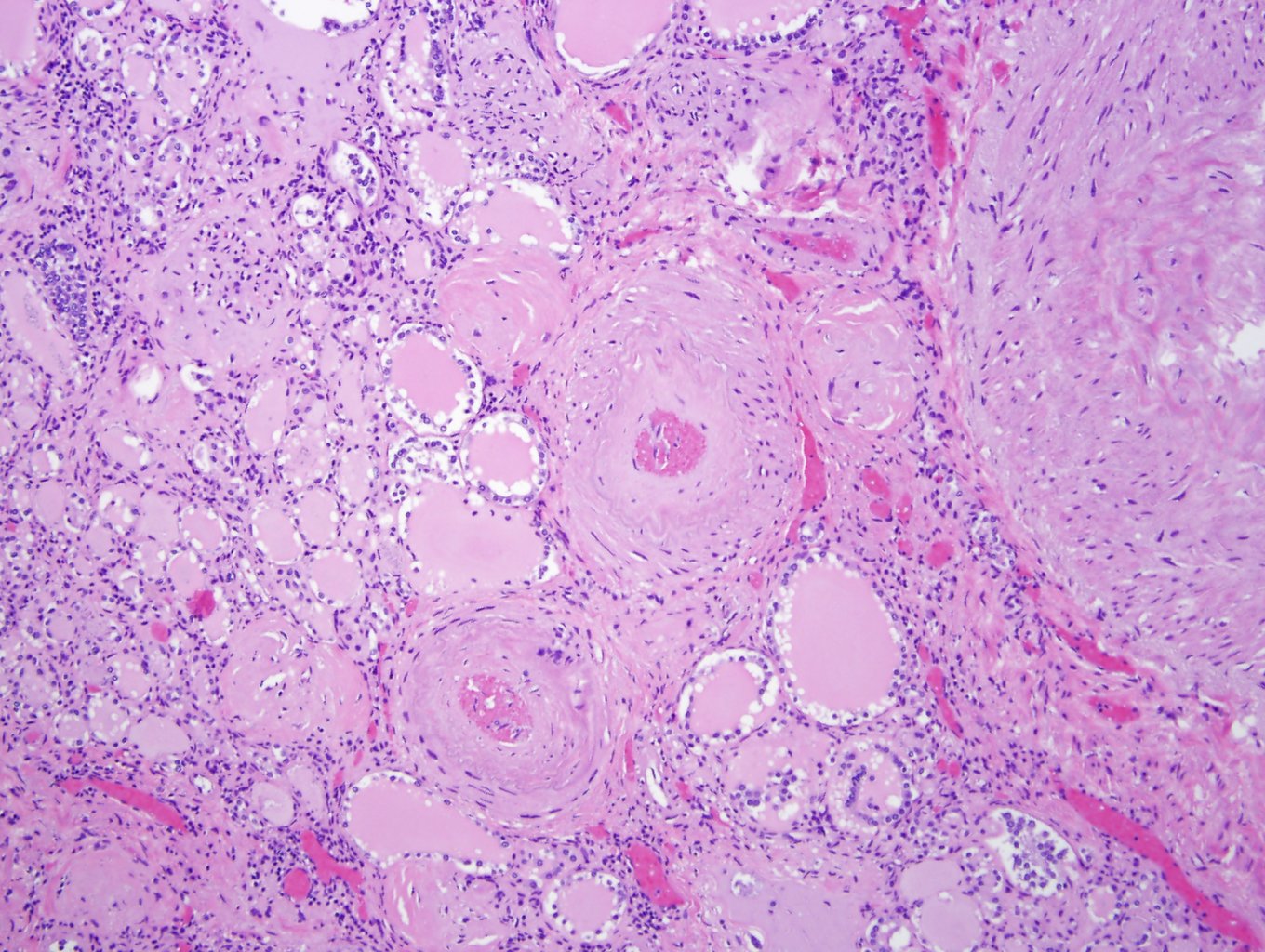System: Forensic Pathology: Kidney: : End stage renal failure

System: Forensic Pathology: Kidney: : End stage renal failure



The kidney is an organ which functions to excrete harmful wastes (urea, creatinine, uric acid) from the body, maintains acid-base homeostasis (controls the excretion of bicarbonate and hydrogen ions), maintain appropriate level of electrolytes in the body through excretion and reabsorption and regulate appropriate volume of fluid in the body through sodium and water metabolism. When the kidney is severely damaged it can no longer function appropriately and this can lead to volume overload, hyperkalemia, metabolic acidosis, hyperphosphatemia, anemia (due to decreased erythropoietin), and uremia. During acute on chronic renal failure these abnormalities are more severe and difficult to control. Electrolyte abnormalities particularly hyperkalemia (high potassium) can lead to arrhythmias and cardiac arrest especially in those that are predisposed by underlying heart disease, such as hypertensive cardiovascular disease or congestive heart failure.
The differential diagnosis for acute on chronic renal failure is broad. The most common causes of acute on chronic renal failure are: systemic infection, drugs, dehydration, urinary tract obstruction or urinary retention. Other common causes include: renal hypoperfusion (low blood flow) secondary to dehydration from diarrhea, diuretics (hypertension medication), congestive heart failure, or renal vascular disease. Rarer causes include: underlying glomerulonephritis, hypercalcemia, and hyperurecemia.